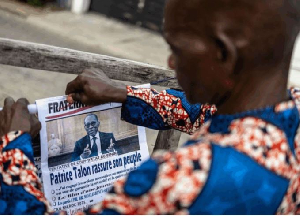Professor Thomas Akabzaa, Chief Director of the Petroleum Ministry, has given an upbeat assessment of the nation’s oil and gas industry, saying, its’ future is promising.
He said with the start of oil drilling at the second oil field – Tweneboa Enyenra and Ntonme (TEN fields), and the Sankofa Gye Nyame expected to come on-stream next year, there certainly were better times ahead.
He added tat it was, therefore, important that the Ghana Extractive Industries Transparency Initiative (GHEITI) positioned itself “for more work in that sector”.
Prof Akabzaa stated this in a speech read for him at the third regional stakeholders’ dissemination workshop on the “Findings and recommendations of the 2014 GHEITI reports on mining and oil/gas” held in Sunyani.
It was organized by the Finance Ministry together with the GHEITI Secretariat and the Multi-Stakeholder Group (MSG).
The workshop provided the platform to sensitize over 100 participants, including District Chief Executives, Coordinating Directors and Finance Officers of the municipal and district assemblies, chiefs, non-governmental and civil society organizations and the general public, on the progress of the GHEITI process.
Prof. Akabzaa said aided by lessons from the mining sector the ministry had taken steps to deepen transparency.
He assured that it would continue to lend strong support to any effort to bring transparency and accountability into the exploration, development and utilisation of the country’s minerals, oil and gas resources.
Mrs. Mona Quartey, a deputy Finance Minister of Finance, said the workshop was meant to address weaknesses in the extractive sector governance system.
‘It was not to satisfy the whims and caprices of any international institution or body,” she said.
Dr. Steve Manteaw, co-Chairman of GHEITI, said the Initiative had over the years shown that it had the potential to help manage the often unrealistic high expectations of the host communities of the extractive industries.
Business News of Sunday, 27 November 2016
Source: GNA













